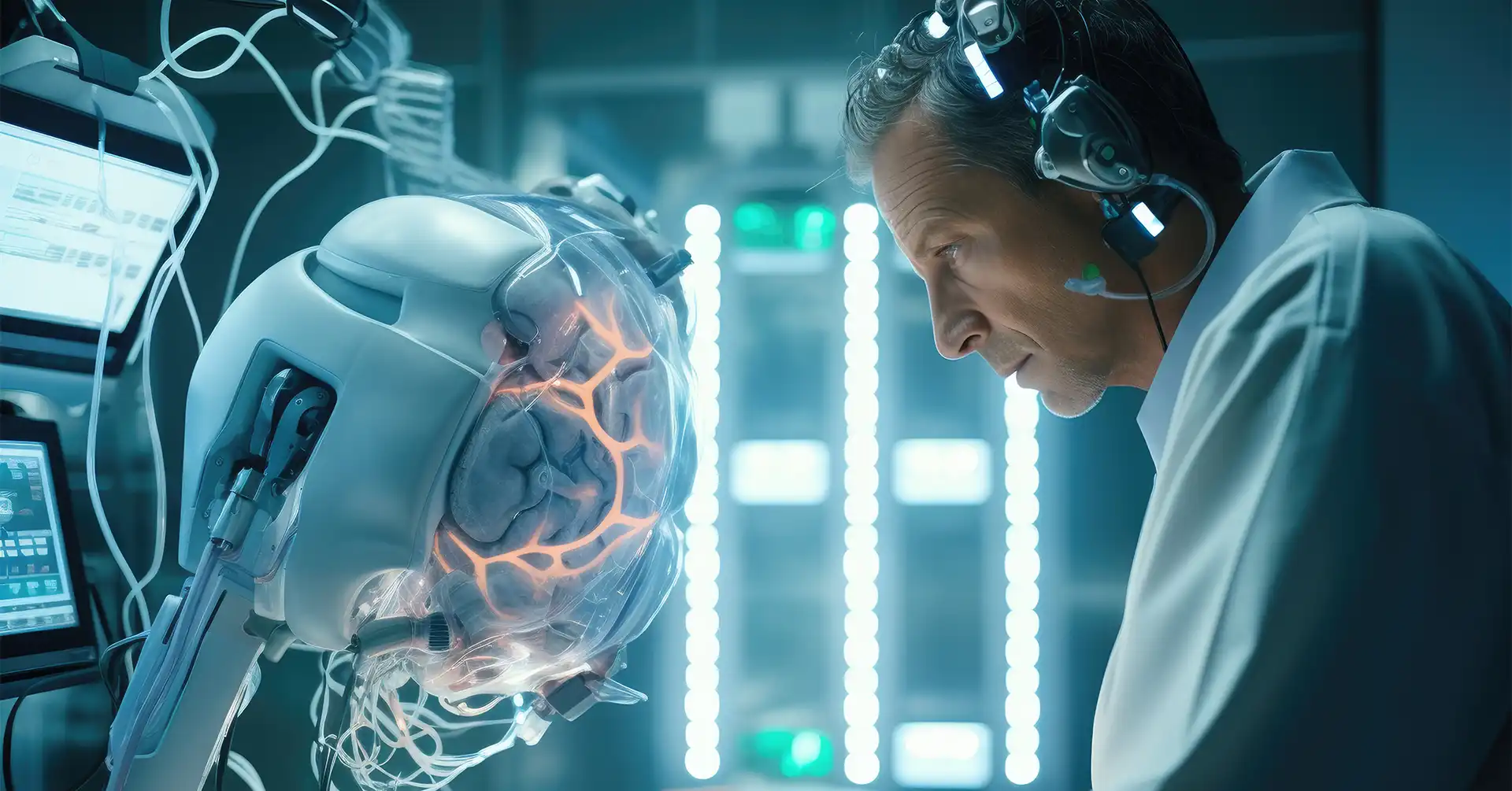We are living in the age of artificial intelligence. However, with the advent of artificial intelligence there has been a lot of harmful impact on the mental health of people. As promoising as the advent of it has been on the different sectors of the economy, it has caused quite a distress to the human mind. In this article we will be discussing briefly about the artificial intelligence on mental health. Let us decode together to have a sound knowledge about the impact of AI on mental helath.
What is Artificial Intelligence?
For the ones who are unaware of the advent of artificial intelligence or the ones who have less knowledge about the technology. Then, let me tell you that artificial intelligence is a simulation of the human intelligence processes by machines, especially computer systems. There are many reasons why Artificial intelligence is being used. However, the specific applications of AI include expert systems, natural language processing speech recognition as well as machine vision.
Now that you have a good understanding of artificial intelligence, what is it? Head to the next section to learn more about artificial intelligence and its effect on mental health.
How has Artificial Intelligence Helped?
Folks, before we move to unveil some of the impact of artificial intelligence on mental health, it is important to know how AI has helped people. So, keep reading to know more. Artificial intelligence has become a big help in the e-commerce sector, and not only that, it has helped in many other fields as well. These fields include engineering, data science, and more. It has boosted productivity and has significantly helped in the hospitality sector and other industries. The reason is that it uses a micromanagement system and definitely boosts productivity. However, artificial intelligence on mental health has been quite a devastating experience. Head to the next section of the article to explore some of the impacts of artificial intelligence on mental health.
Impact of Artificial Intelligence on Mental Health:
Communication:
One of the main advantages is that communication has become easier. You just need one tap to talk to someone. However, there are many instances when artificial intelligence has failed to understand what the user is trying to say. Hence, artificial intelligence fails to reduce isolation through communication and it does not understand human emotions and language.
Divergent Thinking:
This is another way to see the impact of artificial intelligence on mental health. With the advancements that are rapidly taking place in the field of artificial intelligence, there can be a gradual decline in divergent thinking. In layman’s terms, divergent thinking refers to using imagination to create multiple ideas in solving a problem. This will facilitate stress reduction and problem-solving skills as well as increased productivity.
Cognitive Abilities:
One of the most devasting impacts of artificial intelligence on mental health is that it can affect our cognitive abilities. It is extremely important for our mental health. In artificial intelligence, everything is programmed, and it highly relies on giving less chance to analyze the given information. Artificial intelligence primarily keeps us from making essential decisions, and we are in the ear where we strongly depend on the inputs in front of us
Job- Related Stress:
On the one hand, artificial intelligence has helped speed up many works that were otherwise not thinkable. However, it has also created a lot of stress among employees, which includes two reasons. Firstly, many of the employees, or the ones who are looking to seek jobs, have to learn artificial intelligence skills in operating the machines that will be facilitating any kind of AI-related work. The second and the most important reason for taking job-related stress is that there are many jobs that require not employees but are being replaced by robs. Hence, robot substitution in terms of jobs has been a bigger job-related stress to look at. The careers that were highly in demand have become more in demand because of the automation that AI has made possible. Hence, generating job vacancies has become an issue.
Artificial Intelligence and Gaming:
Another significant impact of artificial intelligence on mental health can be seen in the field of gaming. The use of artificial intelligence can be detrimental to the player in any kind of gaming as it tracks the location and senses the behavior of the player. Additionally, it generates notifications, which can be more addictive for the game player
Artificial Intelligence and Hospitality Industry:
Over the past few years, the hospitality and hotel industry has started to recruit people with functional needs for designated serving or kitchen work. Now, with the advancement of robots in place for helping staff and kitchen staff, it has created fewer job opportunities for people with support needs. Hence, with this need, there are many jobs, such as that of the waiter, and the crew will be replaced. This will also create job shortages as well as job stress in the work population. Due to the complexity of the human mind, lifestyle as well as cultural factors, there are many concerns that cannot be one program helpful for the unique individual.
Artificial Intelligence and Mental Therapy:
This is one of the most interesting impacts of Artificial intelligence on mental health. Mental Health awareness has been a significant study for the past few years. However, there is still a sense of hesitation in seeking mental therapy. People are often given the choice between a chatbot or a mental therapist. Guess what? People always choose the chatbot instead of seeking mental health therapy. There are many reasons why people choose chatbots instead of mental health therapy. This includes fear of judgment, tailormade answers, or expecting a quick-fix response. However, the limitations of this approach include a lack of empathy from the chatbots. There are many times that include artificial intelligence in understanding complex emotions and, hence, may not give anyone with mental health issues the accurate help they need.
Artificial Intelligence on Window Shopping:
As we know, there have been many times when artificial intelligence has played a vital role in different types of industries. One such industry is the e-commerce sector. The reason is that artificial intelligence collects a lot of potential information from the buyers who are browsing history. They will also suggest similar products on different websites, and this will make the buyer spend a lot more time window shopping. This will lead to mental health distress as the people who are involved in shopping will indulge in excessive shopping that will lead to mental health concerns such as hoarding and guilt trips, among others.
Psychological Impact:
Folks, in the previous section of the article, we have traced some of the psychological impacts of artificial intelligence on mental health. Now it’s time to look at the way how psychology is affected by artificial intelligence.
Addiction:
This is one of the most common impact of artificial intelligence on mental health. There is a significant overuse of the technology which includes the AI systems that leads to addictive behaviour. This will lead to a reduced sense of community or the connection to others. Hence, less time will be spent on engaging with people.
Anxiety:
Another important impact of artificial intelligence is that it will be a significant cause of anxiety. One can feel anxious about using the AI systems and the outcomes they are expecting
Depression:
Another significant impact of artificial intelligence on mental health is depression. The users of the AI systems may feel depressed when the help or the query that they are looking to get resolved is not solved. There can also be a sense of help when interacting with AI systems
Conclusion:
One of the most significant things that one needs to remember about mental health is to take care of it. The impact of artificial intelligence on mental health in many ways has caused distress and can be expected to cause issues if not used appropriately. Hence, seeking the right mental health therapy is advised, and the use of AI in moderation will also be helpful in maintaining good mental health. That’s all, folks. I hope the article will help you to get all the information you need.
Also Read:






